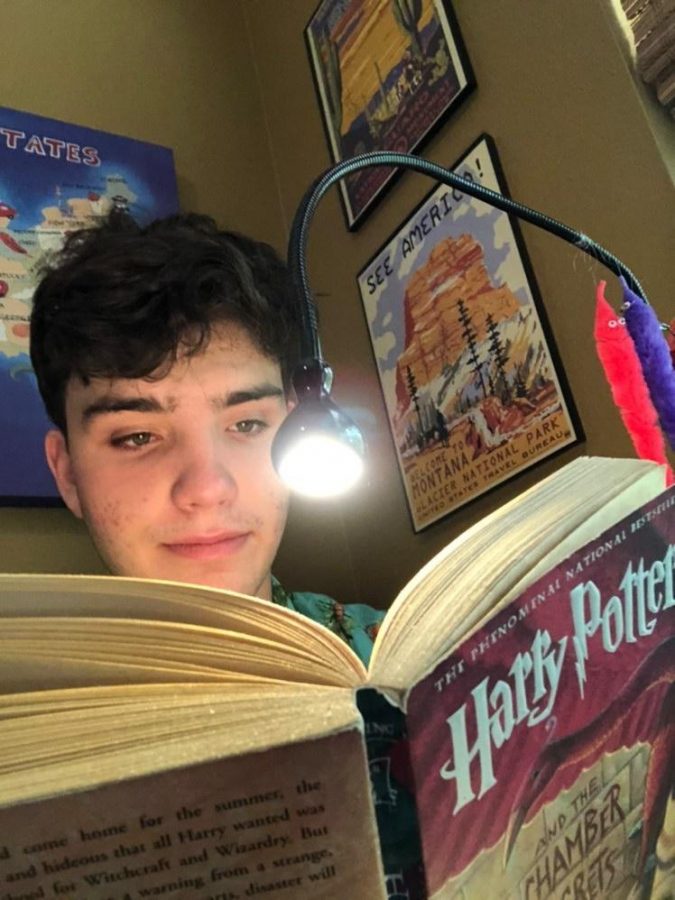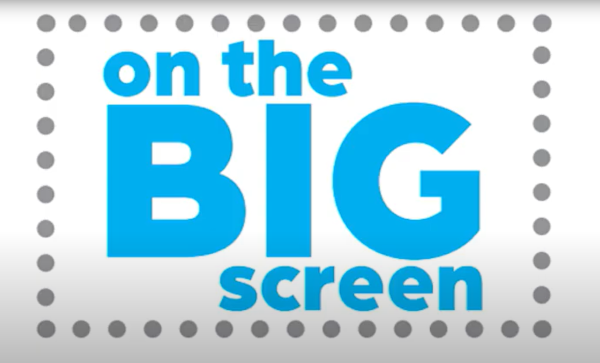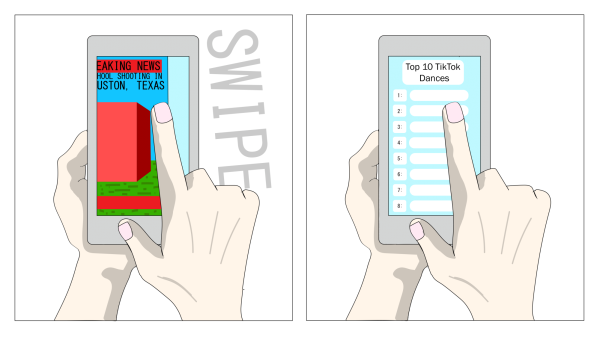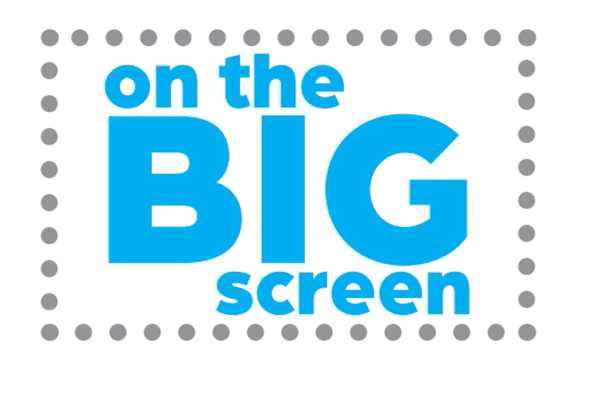Death to the author
Controversial creators leave consumers struggling to determine who to support.
photo by Joshua Nemery
Junior Joshua Nemery enjoys childhood classic “Harry Potter.” However, the series’ writer JK Rowling has generated controversy surrounding her transphobic Tweets.
A 280 character tweet. That’s all it takes for a well-accredited creator to be reduced to nothing in the eyes of the public.
For decades, problematic creators have risen to fame. While some wealthy celebrities continued unchanged and uncontested, others have been bashed for their controversial actions. Many art lovers have had to face a devastating decision: whether or not it is still ethical to consume their favorite creator’s artwork.
There are cases where the actions of these creators are obviously disgusting, and their punishment is just. Singer-songwriter R.Kelly, the once-beloved “King of Pop-Soul,” has had nearly as many allegations of sexually assaulting minors as he has R&B hits. From illegally marrying a 15-year-old when he was 27 to allegedly forcing an underage girl to have an abortion, it is inherently obvious this is not the kind of artist that can be supported, and to the pockets of R. Kelly is morally reprehensible.
However, not all problematic creators are as straightforward as R. Kelly, and the line of morality is quite a thin one. In situations like this, it becomes murky on what the “right” thing to do is: it may be best to let the creator die.
From creator to consumer
“Death of the author” is the concept that books are primarily meant to be read, not written, and therefore the interpretations of the reader are just as valid as the interpretations of the author. Essentially, no matter what the creator thinks or feels, once a published work is put into the world, it belongs to those consuming it, and the harmful background the author may hold does not affect it.
Perhaps the most infamous example of a complicated fall from grace is that of JK Rowling. Author of popular book series “Harry Potter,” Rowling fell under scrutiny after a series of transphobic tweets and a problematic mimicry of transgender people in her novel “Troubled Blood.” As Rowling is an influential author, it is incredibly dangerous for her to use her platform to spread hate. While she does have the right to an opinion, she also has a certain responsibility to ensure she is setting the proper example to her audience, especially considering her younger readers.
That said, the ethical consumption of Rowling’s “Harry Potter” series is not as black and white as listening to R. Kelly’s music. While she has said some terrible things and hurt a community of thousands, “Harry Potter” has a nostalgic background that cause many, including transgender individuals, to still consume and enjoy it even into adulthood. This creates a dilemma: can readers still support a story of love, hope, and acceptance, crucial to the upbringing of millions, even when the author herself shares hateful ideas?
The answer is a complicated “yes.” Holding onto this nostalgic piece of literature is understandable, and while Rowling does collect money from the franchise, there is no evidence of her donating to anti-LGBTQ+ organizations, so readers do not need to worry about their money being sent to any hate groups. In contrast with R. Kelly, Rowling never actually hurt any individuals or broke the law, and although her voice itself is harmful, the best thing for readers to do is distance themselves from her.
Still, books and movies can be purchased second-hand and merchandise can be bought from online fan stores to ensure no money goes back to the creator themselves. Additionally, spreading awareness about the harmed group or donating to organizations that support them can help change the impact of consumers from one of negativity to positivity.
On the small screen
There are, of course, exceptions to the rule, when relationships between the creator and the audience are much more personal, such as the case with social media influencers. On sites like YouTube, concerning behavior can go unnoticed for years before finally being brought into the spotlight. YouTuber Shane Dawson cultivated a following through years of uncomfortable racist and pedophilic jokes, made all the more dangerous by the fact that YouTubers interact directly with their audiences. From “meet and greets” where Dawson kissed a minor to encouraging “edgy” humor about taking advantage of children and animals, Dawson is not the kind of individual young people should be looking up to. Young girls seeing the inappropriate conversations held between Dawson and children their age can have a terrible psychological effect on them — especially if they grow up thinking it is completely normal. Putting young girls at risk of being groomed is horrendous, but not surprising with people like Dawson.
Despite this, Dawson had been able to get away with having such inappropriate content on his channel until last May, when millions of people began unsubscribing in mass due to his disgusting past. The problem, however, lies in the fact that thousands of people knew of Dawson’s content and still continued to support him, enjoying his biased documentaries and purchasing his overly expensive makeup palettes. The fact that people are so willing to set aside racism and bigotry for the sake of shallow entertainment is frankly revolting, and anyone who has continued to subscribe to creators like Dawson need to re-evaluate their own morals.
Similarly, defenders of “House of Cards” actor Kevin Spacey also need to recheck their perceptions of who they choose to follow. Spacey was alleged to have harassed multiple individuals over several decades, including then 14-year-old “Star Trek: Discovery” actor Anthony Rapp. Of course, it is a lot easier to use “death of the author” (or in this case, actor) when discussing movies or TV. While someone like Spacey deserves to be “canceled,” or publicly called out for his actions, outright boycotting his show or movies could end up hurting more people than it helps, as these shows employ dozens of people on set who could lose their jobs. Netflix, the distributor of “House of Cards,” has done the right thing by dropping Spacey from the hit show in 2017, and aside from court cases to bring justice to those who have been hurt, nothing besides Spacey’s career should be left damaged and bruised.
Every case regarding dodgy creators is different and complicated in its own way. It brings up dire questions of whether listeners enjoy the content of their favorite creators. Can people listen to music of people like Michael Jackson or Elvis Presley, beloved music icons who both allegedly had sexual relationships with minors, because they are no longer around to collect the money? Do racist depictions within a medium itself, like the antagonists of “The Hobbit,” ruin the entire work? From Kanye West to Pablo Picasso, there are so many offensive artists whose work or personal statements have impacted others in a negative albeit complicated way, and there is no simple “yes” or “no” regarding whether any contentious creator can be supported. However, in most cases, it is time to let the author die and the consumer interpret the work on its own.
Your donation will support the student journalists of Hagerty High School. We are an ad-free publication, and your contribution helps us publish six issues of the BluePrint and cover our annual website hosting costs. Thank you so much!








